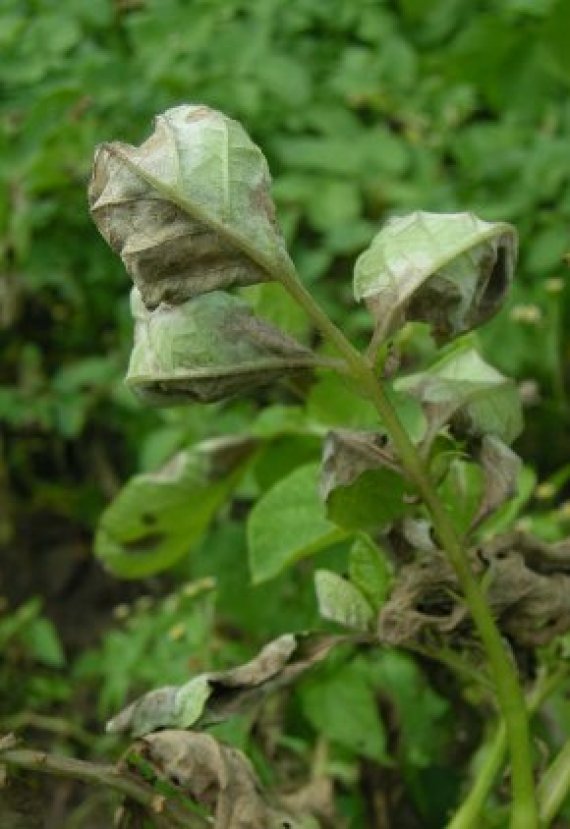Photo: Potato plant with Phytophthora
The new kind of resistance is based on the protein LecRK-I.9 and operates on the outside of the plant cell, explains Klaas Bouwmeester. This is new, because the resistance used so far to help potatoes withstand Phytophthora recognizes unwanted intruders in the plant cell. But this kind of resistance is relatively easy to circumvent because Phytophthora mutates rapidly and can therefore avoid being recognized.
Bouwmeester came across LecRK in Arabidopsis, the model plant Wageningen scientists often use for research. He demonstrated earlier that this protein plays a role in the resistance of Arabidopsis to plant diseases. Then he placed LecRK in potatoes. Now Bouwmeester has demonstrated that these potatoes have an increased resistance to Phytophthora, as he explains in the January edition of the Plant Biotechnology Journal.
Veni grant
That does not mean there is now a potato variety with long-lasting resistance to the potato disease, says Bouwmeester. In 2013 he was awarded a Veni grant from the Dutch Organization for Scientific Research (NWO) to investigate this new kind of resistance further. He is looking for similar proteins in potatoes, as well as in tomatoes and chili peppers. Bouwmeester will examine how these proteins function in order to find the versions that give maximum resistance in these crops. If that works, it would be a good idea to combine this new kind of resistance with the familiar resistance proteins in the plant cell, says Bouwmeester. ‘In that way, we create two lines of defence against Phytophthora.’

